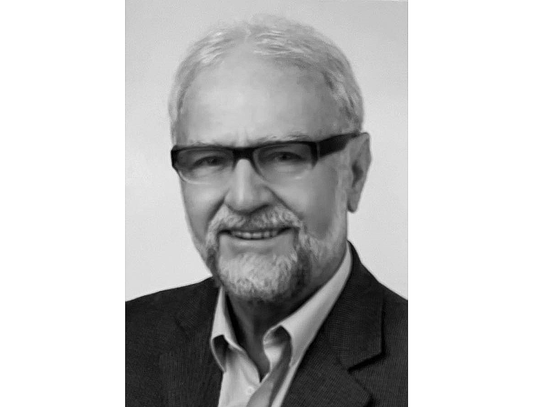Opuściłem Chicago w 1973 roku, kiedy miałem 25 lat, aby pojechać na studia podyplomowe do szkoły w Indianie. Po zrobieniu doktoratu nigdy już nie wróciłem do mieszkania w Wietrznym Mieście. To nie tak, że nie chciałem. To moja praca mi na to nie pozwoliła. Przez następne 48 lat mieszkałem i pracowałem w kilkunastu różnych miastach w pięciu różnych stanach, na środkowym zachodzie, na dalekim południu, czy na nieco bliższym południu. Ale przez cały ten czas miałem naprawdę tylko jeden dom. Chicago.
Jeśli wpiszesz w wyszukiwarkę google słowo „dom”, dostaniesz w odpowiedzi wiele prostych definicji. To siedziba główna i główna baza. To miejsce, gdzie mieszkasz lub gdzie się urodziłeś, gospodarstwo domowe. Istnieją również te wszystkie inne definicje, które znalazły swoje miejsce w naszym poczuciu domu. Popularnym stwierdzeniem dotyczącym domu jest to, że „dom jest tam, gdzie wieszasz kapelusz”. Jest także definicja, którą w swoim wierszu „Death of the Hired Hand” oferuje wielki poeta amerykański Robert Frost: „Dom to miejsce, do którego, kiedy musisz iść, muszą cię zabrać”.
Więc co sprawia, że Chicago jest moim domem?
Najbardziej oczywistą odpowiedzią jest rodzina. Moja mama, tata, siostra i ja przybyliśmy do Chicago jako uchodźcy po wojnie w 1951 roku. Kiedy myślę o Chicago, to myślę o tym, jak moja rodzina tutaj żyła, myślę o mieszkaniach, w których mieszkaliśmy, o sklepach, gdzie robiliśmy zakupy, kościołach, w których się modliliśmy, o kinach, do których chodziliśmy, o parkach, w których bawiliśmy się i spacerowaliśmy. Niemal zawsze, kiedy myślę o moich rodzicach, widzę ich w Chicago, siedzących przy stole albo rozmawiających na rogu ulicy, albo stojących na plaży i patrzących w ciemną szarość wody w Jeziorze Michigan. Nawet teraz, gdy moi rodzice odeszli, myśląc o nich, często myślę o ich grobach na cmentarzu w Chicago.
Kolejną rzeczą, która sprawia, że Chicago jest moim domem, to fakt, że wszystko, co wiem o języku polskim i polskiej kulturze, pochodzi z Chicago. Ludzie, których poznałem, dorastając w mojej dzielnicy wokół Humboldt Park mówili do mnie po polsku i śpiewali mi polskie piosenki, i opowiedzieli mi swoje historie o mieszkaniu w Polsce i o historii Polski. Pamiętam przemówienia o Polsce wygłaszane w National Armory Guard w Humboldt Park w latach 50-tych, parady z okazji 3 Maja, na które chodziliśmy co roku, pomnik Tadeusza Kościuszki w tym samym parku.
Wreszcie to, co sprawia, że Chicago ciągle jest moim domem, to moi polsko-amerykańscy przyjaciele, którzy tam mieszkają i z którymi ciągle rozmawiam i koresponduję, mimo że nie mieszkam w Chicago od tylu lat. Niemal co tydzień rozmawiam przez telefon lub piszę do Roberta Milewskiego, Mike’a Rychlewskiego, Jana Lorysia, George’a Migaly lub Pete’a Krupowskiego. Wczoraj wieczorem rozmawiałem z Mikem o spacerze, który odbyliśmy w mroźny styczniowy dzień wzdłuż jeziora od ulicy Diversey do North. Taka rozmowa zawsze prowadzi mnie znów do domu.
Więc gdy ludzie w Virginii pytają mnie skąd jestem, zawsze odpowiadam to samo.
Z Chicago.
Chicago is Home
I left Chicago in 1973 when I was 25 to go off to graduate school in Indiana. After I got my PhD, I never came back to live in the Windy City. It’s not that I didn’t want to. It’s that my jobs wouldn’t let me. In the next 48 years, I lived and worked in about a dozen different cities in 5 different states in the Midwest, the Deep South, and the not so Deep South. But in all of that time, I’ve only really had one home. Chicago.
If you google the word “home,” you’ll come up with a lot of simple definitions. It’s a headquarters and a home base. It’s a place where you live or where you’re born, a household. There are also all those other definitions that have found their way into our sense of home. A common statement about home is that “home is where you hang your hat.” There’s also that definition that the great American poet Robert Frost offers in his poem “Death of the Hired Hand”: “Home is the place where, when you have to go there, they have to take you in.”
So, what makes Chicago my home?
The most obvious answer is family. My mother and father and my sister and I came to Chicago as refugees after the war in 1951. When I think of Chicago, I think of how my family lived there. I think of the apartments we lived in, the stores we shopped in, the churches we prayed in, the movie theaters we went to, the parks we walked through and played in. Almost everytime I think of my parents, I picture them in Chicago, sitting around a table or talking on a street corner or standing on the beach looking at the dark grayness of the water in Lake MIchigan. Even now that my parents have passed away, when I think of them, I often think of their graves in the cemetery in Chicago.
Another thing that makes Chicago my home is the fact that what I know about Polish language and culture comes from Chicago. The people I knew growing up in my neighborhood around Humboldt Park spoke Polish to me and sang Polish songs to me and told me stories about their lives in Poland and the history of Poland. I remember going to speeches about Poland given at the National Guard Armory in Humboldt Park in the 1950s, the May Day parades we went to every year, the statue of Tadeusz Kosciuszko in that same park.
Finally, what makes Chicago still my home is my Polish-American friends who live there and who I still talk to and correspond with even though I haven’t lived in Chicago in so many years. Almost every week, I talk on the phone or write to Robert Milewski, Mike Rychlewski, Jan Lorys, George Migala, or Pete Krupowski. Just last night, I talked to Mike about a walk he and I took one cold January day along the lakefront from Diversey to North Avenue. That kind of talk always brings me home again.
So, when people here in Virginia ask me where I’m from, I always say the same thing.
Chicago.
John Guzlowski
amerykański pisarz i poeta polskiego pochodzenia. Publikował w wielu pismach literackich, zarówno w USA, jak i za granicą, m.in. w „Writer’s Almanac”, „Akcent”, „Ontario Review” i „North American Review”. Jego wiersze i eseje opisujące przeżycia jego rodziców – robotników przymusowych w nazistowskich Niemczech oraz uchodźców wojennych, którzy emigrowali do Chicago – ukazały się we wspomnieniowym tomie pt. „Echoes of Tattered Tongues”. W 2017 roku książka ta zdobyła nagrodę poetycką im. Benjamina Franklina oraz nagrodę literacką Erica Hoffera za najbardziej prowokującą do myślenia książkę roku. Jest również autorem serii powieści kryminalnych o Hanku i Marvinie, których akcja toczy się w Chicago oraz powieści wojennej pt. „Retreat— A Love Story”. John Guzlowski jest emerytowanym profesorem Eastern Illinois University.-John Guzlowski's writing has been featured in Garrison Keillor’s Writer’s Almanac, Akcent, Ontario Review, North American Review, and other journals here and abroad. His poems and personal essays about his Polish parents’ experiences as slave laborers in Nazi Germany and refugees in Chicago appear in his memoir Echoes of Tattered Tongues. Echoes received the 2017 Benjamin Franklin Poetry Award and the Eric Hoffer Foundation's Montaigne Award for most thought-provoking book of the year. He is also the author of two Hank Purcell mysteries and the war novel Road of Bones. Guzlowski is a Professor Emeritus at Eastern Illinois University.










